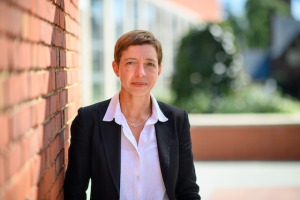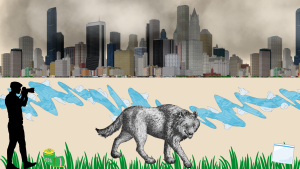I write this just a few weeks before my retirement as a professor at Rollins College. I will no doubt leave the campus after Commencement 2011 with some sadness, but with a great zest for the adventures that are yet to come and the work that is to be done. This is the beginning of that time for reflection and renewal. It is a time of major transition in my life.
I am reminded, too, that I will now have more time to think about the perils of aging. Maybe it will not be as difficult as I have feared. After all, the last innings of a ball game are often more exciting than the earlier ones. A good book comes together and begins to make sense in the last few chapters – and a person’s last years, if done right, can be “the best of life for which the first was made.”
This time has made me think a lot about transitions. They enable us to reflect upon who we are and where we hope to travel. For me this is the end of a career that I cherish.
Transitions are moments when we realize that life as we know it is changing. We can remake ourselves, redefine our goals or ultimately reaffirm who we are.
They are difficult because of their inherent ambiguity and the ambivalence they often generate. What once appeared solid is now evolving into something else, and we are not sure whether the after will be better than the before.
When I came to Rollins in 1961, I heard some students and faculty express real fears that the College would change dramatically and abandon its core values. (Sometimes I worried that it was my arrival here that engendered those fears).
Nevertheless, what makes this institution so very special to me is that those fears have never been anything but fears. We have always been and we will remain a small, vibrant liberal arts college. There is no question such institutions go increasingly against the cultural grain. We care about creativity and the long-term life of the mind, not about tailoring students to fit predefined molds, designed for quick return and desirous of immediate gratification.
This College does not belong exclusively to any one group. It is a place dedicated to learning in the singular. It is a place for different voices, different cultural backgrounds and different individuals to mix and engage. This is a place where we value talking freely to one another and where we realize that is our only hope of learning something beyond the self.
Rollins has always reminded me that we want to be self-conscious about defining who we are and want to be, self-conscious in the sense of thinking consciously about ourselves. In 1961 and in 2011, our students were and are preparing for action if they are to become intelligent democratic participants and leaders who can cultivate a deep desire to create peace and justice at home and abroad.
Rollins students receive a broad-based education of the highest quality. Our liberal arts tradition has always articulated that. I leave knowing that the value and virtues of the liberal arts will continue at Rollins for another 125 years. Our small, intimate scale and the values we cherish and the mind stretching that takes place in our classroom has always made that possible – and it still does.
Empathy, the prerequisite for compassion, is the capacity to imagine what another person experiences. Imagination feeds on exposure to the unknown, to the other, to the different.
At Rollins, it is the conversations about values, social justice, socially and ethically responsible decision making and complex clashing world culture that take place in our classrooms that are the center of teaching and learning.
I shall miss those conversations. However, as I start out on this journey of transformation, I know that I have not been alone but part of a far-reaching community at Rollins. Nevertheless, professors, deans, and presidents come and go, but the heart of the school endures.
Each member contributes his or her best, and each benefits from the achievements and successes of the others. My job in large part was to act as one of many stewards of this treasure and to ensure that it continues to thrive and to grow.
I have been favored with many unearned blessings and none have I cherished more than the privilege these 50-some odd years of going to work every day with able, highly motivated young people.
I am indebted to the legendary scholars and teachers of my days in college and law school; I am indebted to the members of our faculty—especially to Professor Maurice “Socky” O’Sullivan and Professor Emeritus Jack Lane—who served as my role models and who never cease to overwhelm me with their talent and kindness; Providence has indeed been kind—even in transition.







Be First to Comment